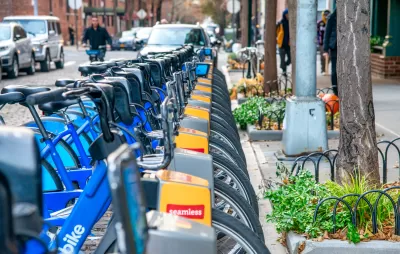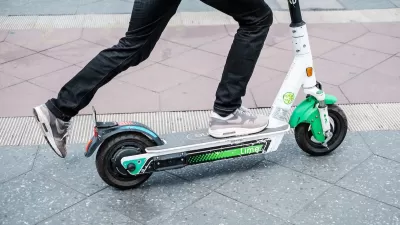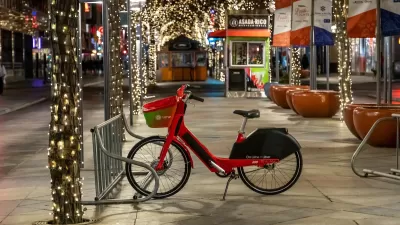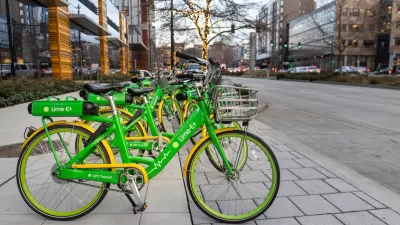The growing popularity of shared mobility modes, many small and highly efficient, could soon begin having a significant impact on urban transportation patterns.

According to a brief in Smart Cities Dive by Dan Zukowski, “In a December survey of more than 30,000 mobility users in 15 countries, the consulting firm found that over 25% of respondents living in urban areas said they were considering getting rid of their private vehicles in favor of other transportation options.”
This signals the growing mainstream popularity of shared mobility such as ride hailing, bike share, and shared e-scooters. “ In 2021, shared micromobility users racked up 121 million trips on bikes and scooters in the U.S., according to data from the National Association of City Transportation Officials.”
Zukowski points out that cities will need to adapt to these new mode shares, quoting Kersten Heineke, co-leader of the McKinsey Center for Future Mobility: “If we think about sizeable fleets of shared vehicles in cities, we will need to either repurpose parking garages or create new spots, new spaces where these vehicles can be cleaned, maintained, parked whenever they’re not in operation.” Bike and scooter riders will need safe, protected micromobility lanes to get around cities and connect to transit and urban amenities.
In its early days, the rapid introduction of e-scooters with little regulation led to conflict with pedestrians and cluttered sidewalks; ride-hailing vehicles block curb space while waiting for customers and have led cities to establish designated loading zones; and autonomous vehicles are causing traffic jams and interfering with transit and emergency vehicles in San Francisco and elsewhere.
FULL STORY: Growing shared mobility use likely to disrupt urban transportation, private car ownership

Alabama: Trump Terminates Settlements for Black Communities Harmed By Raw Sewage
Trump deemed the landmark civil rights agreement “illegal DEI and environmental justice policy.”

Study: Maui’s Plan to Convert Vacation Rentals to Long-Term Housing Could Cause Nearly $1 Billion Economic Loss
The plan would reduce visitor accommodation by 25% resulting in 1,900 jobs lost.

Planetizen Federal Action Tracker
A weekly monitor of how Trump’s orders and actions are impacting planners and planning in America.

Waymo Gets Permission to Map SF’s Market Street
If allowed to operate on the traffic-restricted street, Waymo’s autonomous taxis would have a leg up over ride-hailing competitors — and counter the city’s efforts to grow bike and pedestrian on the thoroughfare.

Parklet Symposium Highlights the Success of Shared Spaces
Parklets got a boost during the Covid-19 pandemic, when the concept was translated to outdoor dining programs that offered restaurants a lifeline during the shutdown.

Federal Homelessness Agency Places Entire Staff on Leave
The U.S. Interagency Council on Homelessness is the only federal agency dedicated to preventing and ending homelessness.
Urban Design for Planners 1: Software Tools
This six-course series explores essential urban design concepts using open source software and equips planners with the tools they need to participate fully in the urban design process.
Planning for Universal Design
Learn the tools for implementing Universal Design in planning regulations.
Caltrans
Smith Gee Studio
Institute for Housing and Urban Development Studies (IHS)
City of Grandview
Harvard GSD Executive Education
Toledo-Lucas County Plan Commissions
Salt Lake City
NYU Wagner Graduate School of Public Service





























